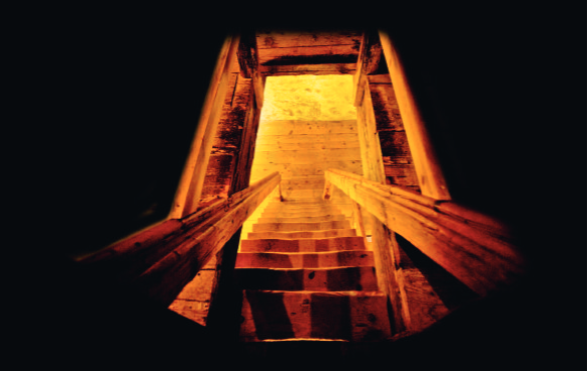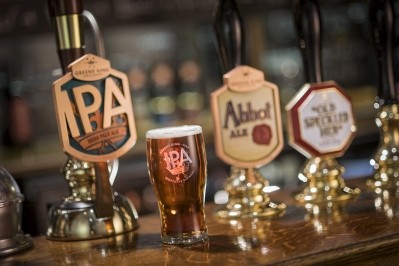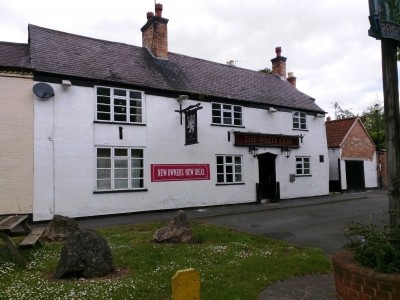Becoming a master of cellars

The under-appreciated engine room of many pubs is the cellar. Because it is out of sight, it can fall victim to the old adage and become out of mind.
You may be able to encourage customers through your doors by offering a variety of TV sport and having the trendiest-looking pub in town, but they will be heading back out again if the beer you serve is poor in quality.
According to last year’s Cask Marque and Vianet’s beer quality report, 95% of those surveyed would stop visiting a pub if the beer was poor. It says the first step to happy customers starts with quality products from a well-kept cellar.
Paul Wiscombe, licensee of the Anchor Inn in Seatown, Dorset, is currently Palmers Brewery’s Cellarman of the Year.
Wiscombe, who runs the cellar with manager James French, believes the way a cellar is maintained is fundamental to a pub keeping its profits healthy.
“You can’t take shortcuts with the cellar; it must be run like a commercial kitchen,” Wiscombe advises. “You have to keep the cellar clean to prevent bacteria contaminating the beer and be aware of the sell-by dates of your stock if you are going to serve it properly.
“If you think you can reduce waste by increasing the time between line cleans, it is a false economy because the beer won’t be in good condition. You’ll end up being unable to sell it anyway,” he adds.
Cask Marque director Paul Nunny says the organisation’s Scores on the Cellar Doors programme has shown publicans there is room for improvement.
The organisation was surprised to find many pubs achieving only three marks out of five when being audited for the scheme.
“We’ve been talking about beer quality for 20 years, but not everyone is listening. Our beer quality report showed that pubs are losing £300m of profit through poor beer and cellar management,” Nunny explains. “A well kept cellar increases beer sales by 3%.”
Cellar cleanliness is an underlying issue, according to Andy Pottinger, who is director of cellar technical services firm Morepour. He believes pubs need a major rethink on cellar hygiene.
“The lack of a clean and well maintained cellar will inevitably lead to issues such as fobbing, which then increases the amount of wastage,” he says.
“But pubs do not need to throw stock away if they understand the basics of good cellar management. I believe many pub chains need to do more to encourage good cellar management.”
Cask Marque’s Nunny agrees and he believes that pubs need to take the basics of cellar management seriously.
He says that pubs should train their staff to gain official accreditation, such as the BIIAB Level 2 Award in Beer and Cellar Quality (Cask and Keg).
Education is vital
As well as Cask Marque, specialist training companies such as CPL Training and many breweries such as Greene King can deliver BII-accredited courses.
“Each pub needs one member of staff who manages the cellar,” adds Nunny. “We were told by one pub group that the problem is that staff move on; but if you train staff they feel valued and it will create an understanding and passion for cellar management.”
His views on the essentials of quality training are echoed by licensee Jim Storey, whose pub, the Wheatsheaf in Gateshead, Tyne and Wear, has appeared in CAMRA’s Good Beer Guide every year since he became landlord 18 years ago.
“Training is essential and while I am responsible for the cellar, I like to bring new bar staff in on the day I clean the lines to show them every aspect of the cellar,” he explains.
“My main reason is for health and safety, because that’s such an essential issue, but I also want to show them the importance of good cellar management. They need to know what to look for while I’m not there, such as hygiene, stock rotation and control, and checking the temperature of the cellar.”
The cooling of the cellar is another topic that forms part of the ABCQ cellar management courses. Although it can be a massive hit to a pub’s overheads, maintaining the cellar’s cooling systems is essential.
Morepour’s Pottinger explains: “If a cooler’s grille is covered in fluff, it won’t run efficiently and will not keep the temperature right.
“We also advise that licensees keep them on at all times. Some believe that turning them off overnight will save money, but it costs in the long run because the beer condition will deteriorate if the temperature rises.”
Steve Comerford, sales director of Beertech, is keen to emphasise that publicans need to remember that the cooling system isn’t about keeping the cellar itself cold.
“The coolers are really about keeping the beer at the correct temperature, not the cellar,” he says. “If the beer is above 12°C, the bacteria multiplies quickly and you get issues with fobbing and you can’t pour it properly.”
Modern appliances can help all areas of cellar management, including cooling, line cleaning and monitoring. Vianet managing director Steven Alton believes embracing such advances can improve cellar management.
He says, “You must get the basics right first, but using the technology that’s available can help increase the efficiency, which helps pubs achieve better profitability.”
Modern assistance
Getting a grip of the essential tasks is the key for any good cellar manager.
And while some areas of the job haven’t changed much over the years, some aspects have evolved, such as auto tilt stillage.
Advances in technology are also taking the guesswork out of many tasks. With such accuracy comes the chance to reduce costs and increase profits, according to Vianet’s Alton.
The company’s iDraught system monitors every stage of draught dispense and offers cooler diagnostics; the data can then be accessed via any device, including tablets and smartphones.
“There is no guesswork with iDraught, it can tell you everything you need to know about all the aspects of the cellar to ensure the equipment is working at its most efficient,” says Alton.
The guesswork can also be taken out of cleaning the lines with a number of systems that carry out the task, such as automated systems.
PhoenixABC technical director Richard Mitchinson says such equipment will become more intelligent, making cellar management even easier.
He is developing the technology that will allow live feedback to be sent to managers and the head offices of pub companies.
“I see this development being a big part of our future,” Mitchinson explains. “I envisage that it will even be able to order line-cleaning chemicals direct from the manufacturer so you don’t have to miss line cleans due to running out of detergent.”
More efficient cellar coolers have also changed the face and cost of keeping the correct temperature.
Beertech’s Steve Comerford says his company’s Airflow system, which is used during winter months, can help reduce cooling costs from between 50p and 90p per hour down to 2p per hour.
“Airflow brings in the ambient air outside when it’s below 10°C to reduce the temperature in the cellar. It can save a pub about £1,200 a year in electricity and as 60% of the year the air temperature is below that, it really can help make managing the cellar more cost efficient.”







